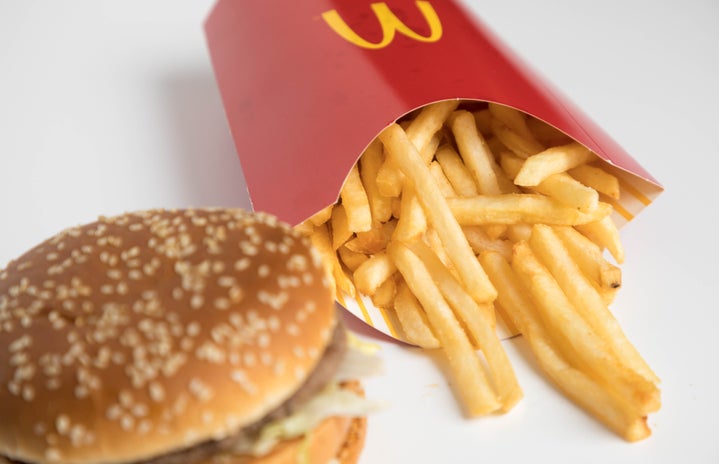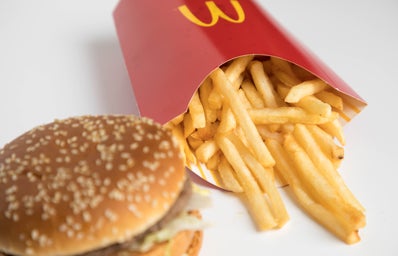In one of my classes, my professor brought up an interesting point that as a marketing major I found particularly fascinating. He told us that McDonald’s began selling their drinks with wider straws in order to get consumers to drink more. Rather than choosing a small or a medium drink, consumers felt the “need” for a large or an extra-large drink as the wider straws resulted in faster consumption. Some articles I found about the topic even point to consumers thinking the drink tastes better from the way the wider straws make the drink hit the taste buds.
Here is the dilemma: are fast food chains actually causing obesity? Anyone who has taken a basic marketing class knows that marketers cannot create needs, only wants and desires. A need is a physiological necessity required to live. A want is the desired method of filling that need. McDonald’s cannot create a need for food, but McDonald’s marketers can create a craving for their food through advertising. Ultimately, however, it is up to the consumer how he or she chooses to fulfill a need for food.
In David Zinczenko’s piece, “Don’t Blame the Eater,” he argues that although we should know better than to eat fast food, the prevalence of fast food places in comparison to health food places makes eating healthy difficult. Further complications he lists include lack of information about fast food, difficulty understanding the information, and extensive advertising. He concludes that the fast food industry is vulnerable to well-deserved future lawsuits. Although this piece was written in 2002 and much has changed since then, his primary argument is still concerning.
First, what is concerning are the actual statistics on obesity in the country. According to the CDC, obesity affected about 93.3 million US adults in 2015-2016. Second, what is concerning is that Zinczenko thinks we should not be holding individuals personally responsible for their choice to eat at fast food restaurants. The marketplace responds to what consumers are asking for, especially today in the very consumer-focused and technologically advanced society we live in. If consumers are asking for and desiring unhealthy food, fine. The marketplace will deliver. Now, will McDonald’s try to create a desire for its products over, say, Wendy’s or Burger King? Of course. That is the very nature of business.
While Zinczenko cites the prevalence of fast food places in making his argument to “not blame the eater,” he downplays the other options that people have to take personal responsibility and make better choices about what they consume. Whether this is more carefully choosing what is eaten at a fast food restaurant or buying healthier alternatives at a supermarket, McDonald’s is not an irresistible magnet drawing people in against their will. We all makes choices, and what we consume is one of those choices. We can choose to eat fast food, or we can go to the local Market Basket and buy pasta and red sauce to make a simple spaghetti dinner at home. We all have the option to turn our lives around. Zinczenko did. Directly refuting his own point that people are at the mercy of fast-food chains, he states that he joined the Navy and began eating better. Given that he came from a low-income family (which he cites as being particularly driven toward fast-food), this should offer hope to us all that we can do anything we set our minds to.
The more the marketplace sees people making personal choices to put healthier foods in their bodies, the more healthy alternatives it will offer and for more reasonable prices. Until then, if consumers continue to demand unhealthy options, fast food chains will continue to provide them.



